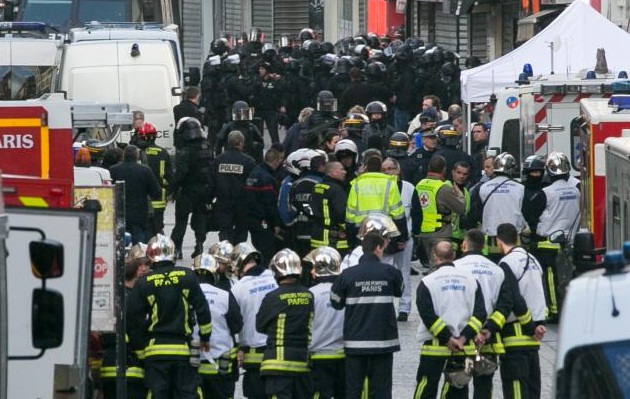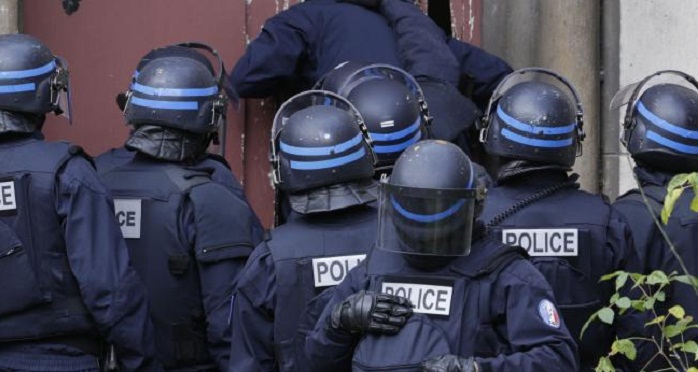“I’m pretty pessimistic about the possibility of Schengen surviving,” he told news.com.au. “A lot of people in Brussels feel it’s the beginning of the end. There’s a lot of pessimism amid EU institutions.”
“Greece was a turning point. There was an incredible sense of despondency after the Greece crisis …. People have a sense that it is a fragile thing and when something is fragile it doesn’t take much to pull it all down.”
It’s a sentiment echoed by University of St. Gallen’s School of Economics and Political Science director James Davis who previously said the bloc is “unlikely to survive 2016” in light of the refugee crisis which led Germany, Sweden, Austria and Slovenia to close borders temporarily.
He said there is no way Europe can go back to “business as usual” and security concerns have left many people questioning what the value of the a common Europe is.
“If politicians don’t get ahead of this, the far-right fringes of politics will and they’ll make political hay … Voters will punish their leaders if they don’t think they’re taking their concerns seriously,” he said.
 ""
""As it became clear three of the eight suspects in France’s Black Friday were citizens living in Belgium, the Centre for European Reform’s Camino Mortera-Martinez and Rem Korteweg said a crisis over the attacks could “challenge the EU project in its entirety” and prooves systems are not working.
“The EU can no longer accept an external border where massive inflows of third country nationals are dealt with in places which barely have electricity — such as the ‘processing centre’ on the Greek island Leros, where the allegedly fake refugee (on his way to carry-out the suicide attack in Paris) was fingerprinted,” they wrote.
However a permanent return to national borders has been ruled out by EU Migration Commissioner Dimitris Avramopoulos who said the agreement is Europe’s “greatest achievement” and not up for debate.
“We don’t intend to open a discussion on Schengen’s future,” he said Wednesday while announcing countries will work more closely on intelligence sharing and creating a no-fly list in a “matter of days”.
“We need actions to protect our citizens from the harm caused by smuggled Kalashnikovs … If we make full use of the tools given to us by Schengen our external borders will be protected in a more efficient way.”
‘SOMEONE HAS SCREWED UP’
The debate comes as European leaders scramble to repsond to the attacks which shocked French citizens at home in their barbarity. After a dramatic siege in a Paris apartment ended with two deaths and seven arrests, security and intelligence forces are also being grilled on what more they could have done to prevent the atrocities.
“Someone has screwed up,” a former French counter-terrorism specialist told AFP, saying there were three possibilities for what happened.
“Either no one saw anything, and that’s a big worry, or we saw things and we didn’t understand them, which is also a problem, or we saw things and despite everything they were able to carry out the attack.”
“It means we either have a problem of intelligence, or analysis of the intelligence, or of the chain of command among the security services. The challenge was made harder by the fact it was prepared in Belgium.”
Since the deadly event it’s emerged police pulled over suspected driver Salah Abdeslam, but released him. Two of the suspected suicide bombers, Omar Ismail Mostefai and Samy Amimour were also known to police — a fact the former security chief of France’s DGSE intelligence service said “should have triggered a red flag”.
“But these guys understand very well the techniques for entering and exiting the Schengen zone. They’ve practised it a lot,” he said.
 ""
""OVERWHELMED AND UNDER-RESOURCED
Despite the warnings signs, others have stressed the difficulty of keeping tabs on 400 million people over 26 countries in a 1.6 million square mile area.
“Fingers will be pointed at the French intelligence services but given the sheer number of individuals they have to monitor, they are finding it overwhelming, and it was always likely that some would slip through the net,” said security analyst Kit Nicholl who works for IHS Country Risk in London.
“Those with training abroad will probably have the awareness of how to circumvent surveillance, either by avoiding communications altogether or using advanced encryption technologies that are advancing at such a pace that it’s hard for intelligence agencies to stay ahead.”
As leaders work to present a united front and boost resourced dedicated to national security, leaders on the far-right have capitalised on the possibility a terrorist could have entered via the well-trodden route for refugees.
National Front leader Marine Le Pen called for an “immediate halt” to new arrivals. In the UK, support for Syrian refugees plummeted 22 per cent since September while more than 420,000 people signed a petition asking for border to be closed to until IS is destroyed.
While the public comes to terms with events that rock the city, French president Francois Hollande reiterated Wednesday is country is at “war”.
Meanwhile UN High commissioner for refugees Antonio Guterres said blaming refugees for the atrocities was “absolute nonsense” and tyranny and war are to blame.
“It is not the refugee outflows that cause terrorism, it is terrorism, tyranny and war that create refugees,” he said.
“It is clear that the Daesh strategy is not only to set Europeans against refugees, but within Europe, to set citizen against citizen within communities, community against community within countries, and country against country in the Union.”
More about:
















































